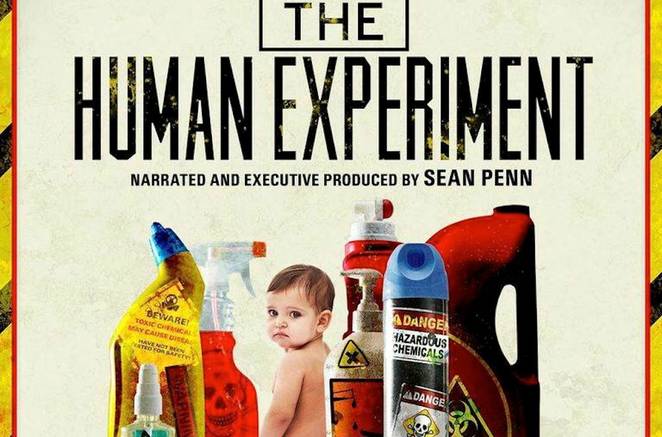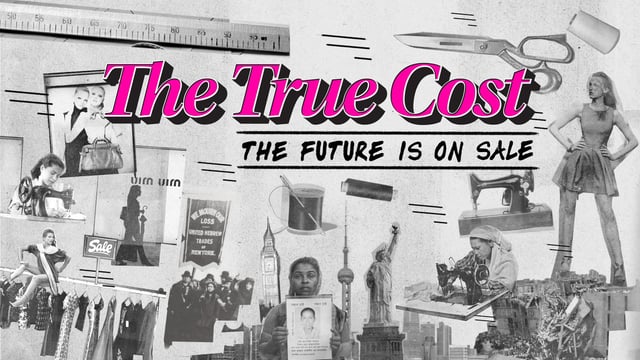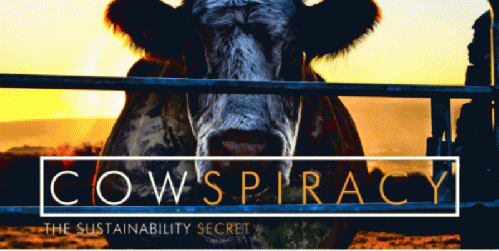We’re new to Netflix. In other words, we joined the masses of ignorant people who thought they would have the will power to cancel their subscription after the free trial period. We can now only pride ourselves in having been late to the game and arguably having had less hours of our lives sucked away mindlessly in the long run. But in reality, we’ve finally drunk the Kool-Aid and we’re just like everybody else.
However, I’ve been pleased to discover that there is more to Netflix than the infamous marathons of TV series that will run continuously with little more effort on the part of an individual than shamefully admitting that yes, I am still watching the Office. I’ve always been a sucker for documentaries. I’m already starting to panic as I tick off yet another BBC Nature series and see that there are less and less relevant suggestions cropping up for me to look forward to. I digress.
All that aside, Ajay and I have been exploring some of the other documentary goodies Netflix has to offer. It began with intrigue, and unexpectedly we found ourselves enthralled with topic after topic that have left us feeling downright ignorant. I really was honestly surprised at how many things people have devoted their lives to and compiled extensive films about that I haven’t even heard of, much less taken any sort of interest in. And they’re all topics that have everything to do with my daily life. It’s scary, really.
So if you’re in the mood to have your lifestyle turned upside down or to humble yourself a few notches, I have a few documentaries I’d like to recommend. And maybe you’re better educated than I am and these topics are more in your wheelhouse than they were in mine, but on the off chance that that isn’t the case, here they are:

The Gist
Chemicals are in everything, and they may be part of the reason we’re seeing such high increases in crazy health problems these days. I will warn you, if you aren’t the paranoid type, you will likely be after this spectacle. The point that I take away, though, is that it’s worthwhile to ask more questions about the things we use in our every day. As much as I love to give the world the benefit of the doubt, the truth of the matter is that I unknowingly put a lot of faith in people who have more than just my health on their minds.
What I Can Do About It
… because if the answer is “nothing,” then why bother, right? The key, by my estimation, is both awareness and baby steps. So here’s my suggested incremental changes:
#1 – Organics. I used to think organic was a joke of a label indicating little more than the fact that whatever good the logo is plastered on can automatically be sold for four extra dollars. Turns out, a little education has changed my mind on this front, and though we’re not an organics-only family by any means, them organic goods certainly sneak their way into some nooks and crannies of our little home here.
#2 – Melaleuca. A second step that comes to mind – having been introduced to multiple families that give raving reviews of the service – might be signing up with a company like Melaleuca. They make routine deliveries of all-natural household products that have meticulously been studied and deemed safe for families and people looking to lower their toxic fume intake. Ajay and I haven’t jumped on this train just yet, simply because of the costs and how little we really need in the way of large quantities of these products given the season of life we’re in. But it’s definitely on the back burner for post-family-expansion days, and something we have mad connections for so if you’re interested, hit us up!
#3 – Don’t Panic. The world is what it is and doing your best is the best you can do. Plus the word on the street is that God has some pretty great plans for remodeling this here planet, and I’m sure he can clear up anything we fail to straighten up ourselves.

The Gist
Cheap clothes may be easy on your wallet but the price is certainly paid elsewhere. This documentary picks apart all the subconscious justifications we have in the back of our heads for our obscene shopping habits at major retail companies who have yet to be held accountable for their horrific sourcing practices. I watched this documentary a good month or two ago and it was enough to keep me from setting foot in a mall to date (though I admittedly never liked shopping much to begin with).
What I Can Do About It
#1 – Buy Fair Trade. It’s more pricey. That’s for certain. But it all depends on how you look at it: one shirt lasting you two years will equate to the cost of five shirts that will last you two months each. The quality is all around better, and the money you’re spending is rewarding companies who make the effort to treat their employees like real people.
Or if you’re broke and in a pinch:
#2 – Go Thrifting! Because seriously that’s just as fun, and it makes a world of a difference in terms of both our use of the world’s resources and our generation of unnecessary waste. Here’s a list I collected from my thrifty sister in law of her favourite second-hand stores in downtown Vancouver: Front and Company on Main Street, Turnabout Luxury Resale on Granville, and Changes on 10th.
Not so fun fact: of the masses of clothes we donate to charity, only a small number are actually being resold locally. The majority are ending up in landfills in third world countries and are ultimately discouraging the local communities from opening their own clothing businesses. Instead, people pick through the piles of clothing of which there is far more than anyone could hope to use. Buying second hand is the ultimate recycling! One less garment needing to be made, one less garment being thrown away. Booyah.

The Gist
Uneducated eaters + a new generation of unsustainable eating habits = insane demand for agriculture. Western agriculture = ridiculous taxation and poor distribution of our world’s resources. Particularly aimed at the meat industry, this documentary elaborates on the impact that our culture’s obsession with meat is having on the world today. Here’s a paraphrased quote from the film that has stuck with me: “If we took all the grain grown to feed the animals we raise to butcher for our meat consumption and converted it into food that could be sent to starving people world-wide, we would have enough to solve world hunger.” It’s not just a matter of some cute cow faces, but a matter of extremely poorly prioritized use of resources and the precious people that our habits are impacting in a bad way.
What I Can Do About It
#1 – Lessening the Meat – While the film might try to sway you toward vegetarian or vegan living, Ajay and I are not the types for which that is a step we’re prepared to take. What we are willing to admit is that needing meat to be a part of every meal we eat on a daily basis is in fact excessive (not to mention expensive). A while back I invested in a vegetarian cookbook, and even went on a week-long vegetarian eating spree with Ajay (which I happened to document here!). The point we took away from that week was that incorporating vegetarian meals into your week rotation is actually not a big deal, and can in fact be delicious!
#2 – Buy Local. Knowing where your meat is coming from is definitely a step in the right direction! It’s worth a few extra dollars to support those who – by virtue of the smaller scale of their operations – are likely putting less stress on our environment than the big guys.
______________________________________________
I hope you see what I mean when I say these documentaries “wrecked my life”: the way we live our lives ought to to be changed as we learn more about the way our world works and about the impact we have on it as the ones God entrusted his creation to. Whether or not the world will be perfect as a result of my actions isn’t what matters. By my estimation, the goal ought to be this: that I might have the ability to say that I’ve lived my life in a way that did justice to the truth that was revealed to me. Refusing to hide behind ignorance is liberating, and the prospect of making a global change ought to be our added bonus.

March 14, 2016 at 2:51 am
We watched Cowspiracy and I couldn’t believe my ears when Brayd suggested we have one veggie meal a week.
LikeLiked by 1 person
March 17, 2016 at 12:36 am
Yes! This post is moneeey. Welcome to my childhood and the darkside 🙂 prepare to spend all your money on milk in glass bottles, locally made furniture and homemade deodorant materials, etc., etc. 😉
LikeLiked by 1 person